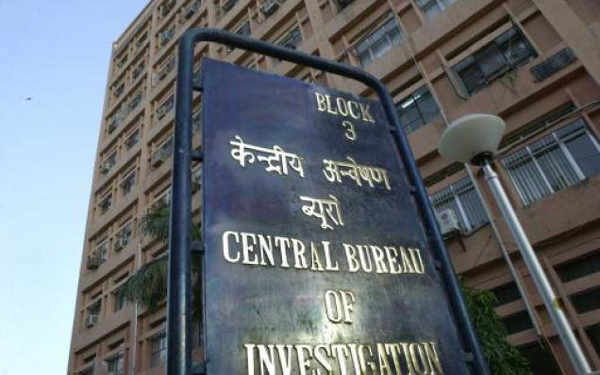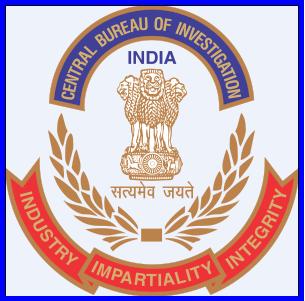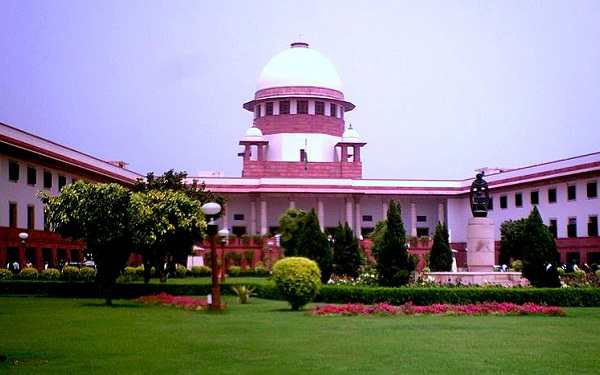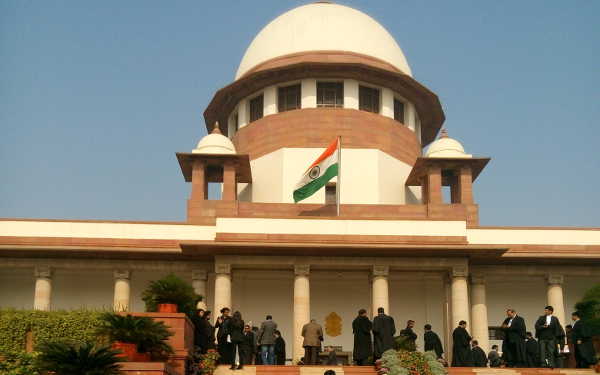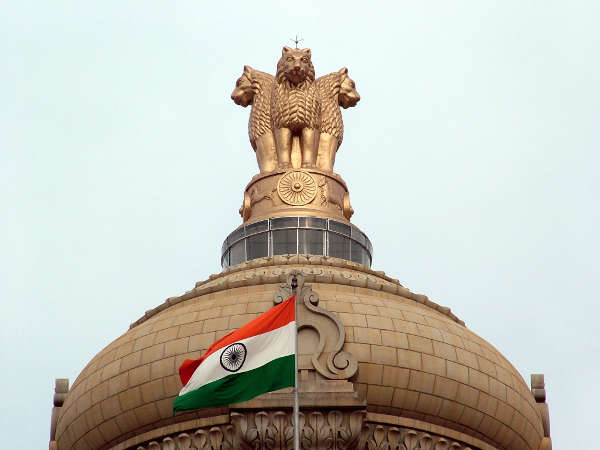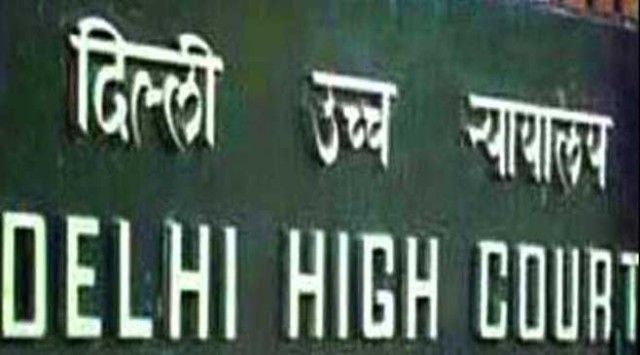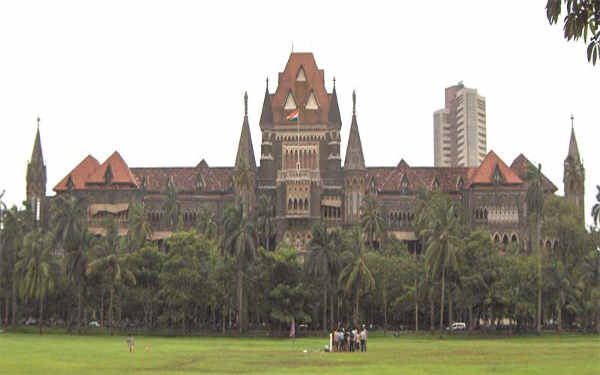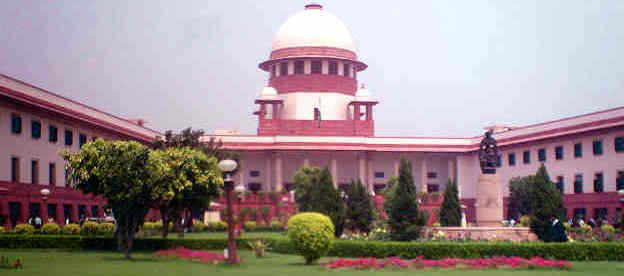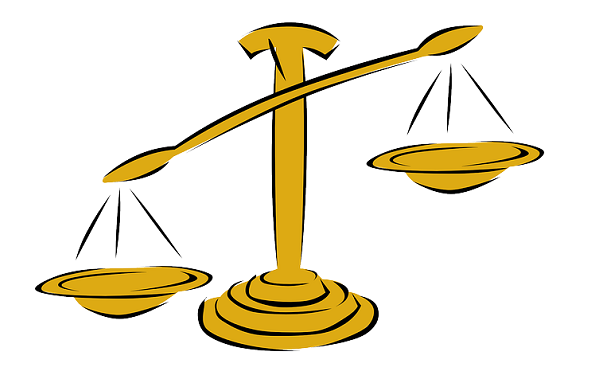Sales Tax department cannot recover the sales tax dues from a genuine transferee of a property for consideration against such property if the same has been legitimately purchased by the transferee, for consideration, without having any notice of the alleged dues of the Sales Tax authorities. This ruling came from a division bench of Bombay high court comprising Justices SC Dharmadhikari and BP Colabawalla in the case of M/s Sonoma Management Partners Pvt. Ltd. & Anr. V. Bank of Maharashtra & Ors. [WRIT PETITION NO. 4188 OF 2014] decided on 22 November 2016.
Facts of this case are as under. Petitioner No.1 is a Private Limited Company which had purchased the property at an auction conducted by the Respondent No.1 (Bank of Maharashtra) and Respondent No.2 (Bank of Baroda), who had both granted financial assistance to the Defaulter Company to which the said auctioned property belonged. The Sales Tax Department claimed that the Defaulter Company has huge Sales Tax dues outstanding to the extent of approximately Rs.28 Crores.
The Defaulter Company had taken financial assistance from Bank of Maharashtra and Bank of Baroda. Since it could not repay the financial assistance taken, the authorized officer of the banks issued a Public Notice dated 14 December, 2009 declaring that the banks had taken physical possession of the said property, belonging to the Defaulter Company, in exercise of powers under Section 13(4) of the SARFAESI Act. Thereafter, Bank of Maharashtra issued a Public Auction Notice dated 31 December, 2009 inviting offers for sale of the said property on “as is where is basis”. The reserve price fixed for sale of the said property was at Rs.12 Crores and the Earnest Money Deposit was fixed at Rs.1.02 Crores. As no bids were received pursuant to the aforesaid notice, another Public Notice dated 20 February, 2010 was issued for sale of the said property. However, now the reserve price was fixed at Rs.11 Crores. No bids were received even with reference to this public notice. Thereafter, in the third week of August 2010, the Petitioners learnt that the said property of the Defaulter Company was in the process of being sold by the said banks under the provisions of SARFAESI Act. Considering that the banks had taken physical possession of the said property, the Petitioners inquired from banks, whether there was any encumbrance on the said property. The Authorized Officer categorically informed the Petitioners’ representative that only the secured assets of the Defaulter Company were to be sold and not the Defaulter Company’s dues. It was further assured to the Petitioners that except the mortgage in favour of the said banks, there were no liabilities or other encumbrance on the said property whatsoever. The Petitioners were also furnished with a valuation Report carried out for the purposes of the auction sale. This valuation indicated the market value of the said property and the reserve price was fixed without any liability or encumbrances attached to it. It is, on the basis of these representations, that the Petitioners decided to participate in the auction sale and bid for the said property.
Accordingly, on 1 September, 2010, the Petitioners placed their bid for purchasing the said property at a price of Rs.11,00,29,000/- and submitted their EMD of Rs.1.10 Lacs. Since, the Petitioners were the highest bidders, they were declared as the successful bidder and a formal ‘letter of acceptance’ was also issued by Respondent No.1.
On receiving the full consideration, Bank of Maharashtra (on behalf of both banks) also executed a Sale Certificate on “as is where is basis” and “what is where is basis” in favour of the Petitioners.
The conveyance was duly executed and registered in the office of the Sub-Registrar, Khandala on 10th March, 2011. It is, at the time of this registration, that the Petitioners for the very first time perused the 7/12 extract of the said property and learnt that there was an encumbrance of the Sales Tax to the extent of Rs.18,38,709/-. Though this encumbrance was not disclosed to the Petitioners and they contemplated taking legal steps against the said banks, the Petitioners finally decided that keeping in mind the magnitude of the investment already made, they would accept the conveyance with the encumbrance of the Sales Tax to the extent of Rs.18,38,709/-.
After execution of the conveyance, the Petitioners learnt of certain property tax dues amounting to Rs.10.05 Lacs. To avoid further complications the Petitioners also cleared these property tax dues, without prejudice to their rights and contentions. Despite this, the Petitioners’ name was still not mutated in the 7/12 extracts or revenue records of the said property. The Petitioners, therefore, caused an inquiry to be made with the Talathi’s office. The Talathi’s Office informed the Petitioners that in order to have their name mutated in the 7/12 extract, the Petitioners would have to obtain a “no claim certificate” from the Sales Tax Department. It is, at this stage, that the Petitioners were shocked to learn about the claim of Sales Tax Department amounting to Rs.28 Crores.
Finally, an order was passed by the Talathi’s Office wherein the Petitioners’ application for mutation was allowed and the Petitioners’ name was entered in the 7/12 extract subject to the encumbrance of Rs.18,38,709/- of the Sales Tax Department.
Being aggrieved by this, Sales Tax Department challenged the same by way of appellate proceedings and a stay order was obtained before the Additional Collector, Satara. The Petitioners were forced to try and sort out the issue with the said banks. However, without attempting to set right the wrong, the banks purported to foist the responsibility of paying the sales tax upon the Petitioners. To make the matters worse, Sales Tax Department purported to issue another notice to the Defaulter Company dated 7 December, 2013 inter alia informing that a further amount of Rs.6.65 Crores was due as an arrears of sales tax and payable by the Defaulter Company. The notice inter alia stated that in the event of non-payment, appropriate steps under the Maharashtra Land Revenue Code, 1966 would be initiated against the Defaulter Company.
In these circumstances, it was contended on behalf of the petitioners that they had no notice or knowledge of the alleged sales tax dues to the extent of Rs.28 Crores and that the alleged dues of the sales tax were never disclosed to the Petitioners either by the banks. It was submitted that these encumbrances would have a vital bearing on the market value of the property and that the market value of the property was approximately Rs.11 Crores and it would be absurd to make the Petitioners to pay an additional sum of Rs.28 Crores to the Sales Tax Department to ensure that the alleged encumbrances on the said property are removed. At the highest, the Petitioners would be liable for the sales tax dues to the extent of Rs.18,38,709/- and which was reflected in the 7/12 extract annexed to the conveyance. It was submitted that the Sales Tax Authorities cannot enforce their alleged charge against the said property which has been legitimately purchased by the Petitioners without notice of the alleged dues of the Sales Tax Department and/or their statutory charge under Section 38C of the Bombay Sales Tax Act, 1969.
The high court held that this entire purchase was done by the Petitioners before the alleged dues of the Sales Tax Authorities was brought to their notice and that the Sales Tax dues (save and except to the extent of Rs.18,38,709/-) cannot be recovered by enforcing their alleged charge under Section 38C of the Bombay Sales Tax Act against the said property, legitimately purchased by the Petitioners and without having any notice of the alleged dues of the Sales Tax authorities.
It was further held that it is not even the case of Sales Tax Authorities that the Petitioners are a dealer within the meaning of provisions of the BST Act or that the Petitioners have taken over the business of the dealer who is the defaulter of the Sales Tax Authorities. The Petitioners are not the successor in business of the Defaulter Company. Petitioner has, in fact, merely purchased the said property which originally belonging to the Defaulter Company and which was mortgaged with the said banks.
Relying upon the Supreme Court judgment in the case of State of Karnataka Vs. Shreyas Papers Pvt. Ltd., 2006 (1) SCC 615 : AIR 2006 SC 865, the Bombay high court held that the Petitioners, having no knowledge (either actual or constructive) of the dues of the Sales Tax Authorities before they purchased the said property, the Sale Tax Authorities cannot recover their dues from the Petitioners by enforcing their charge against the said property.

